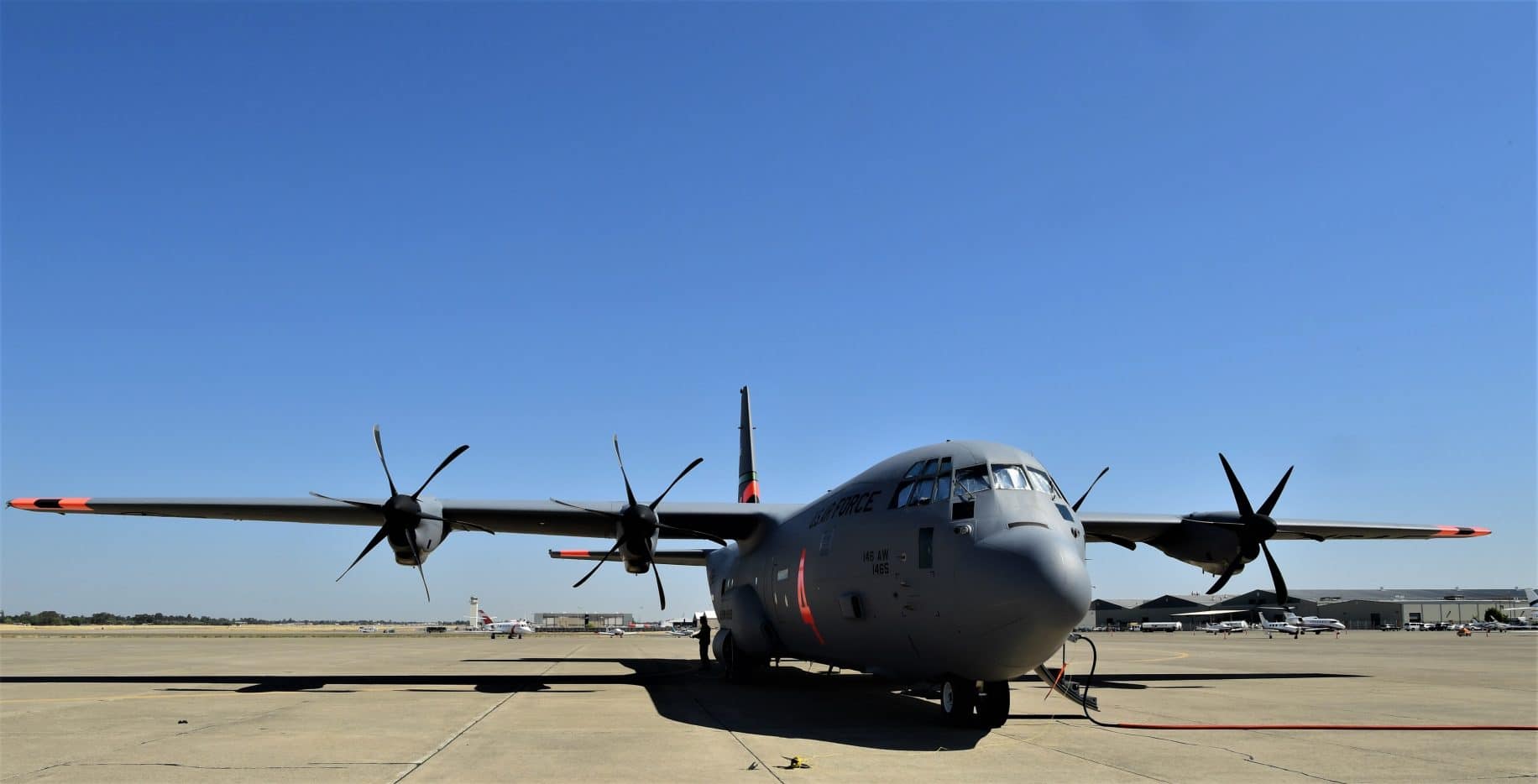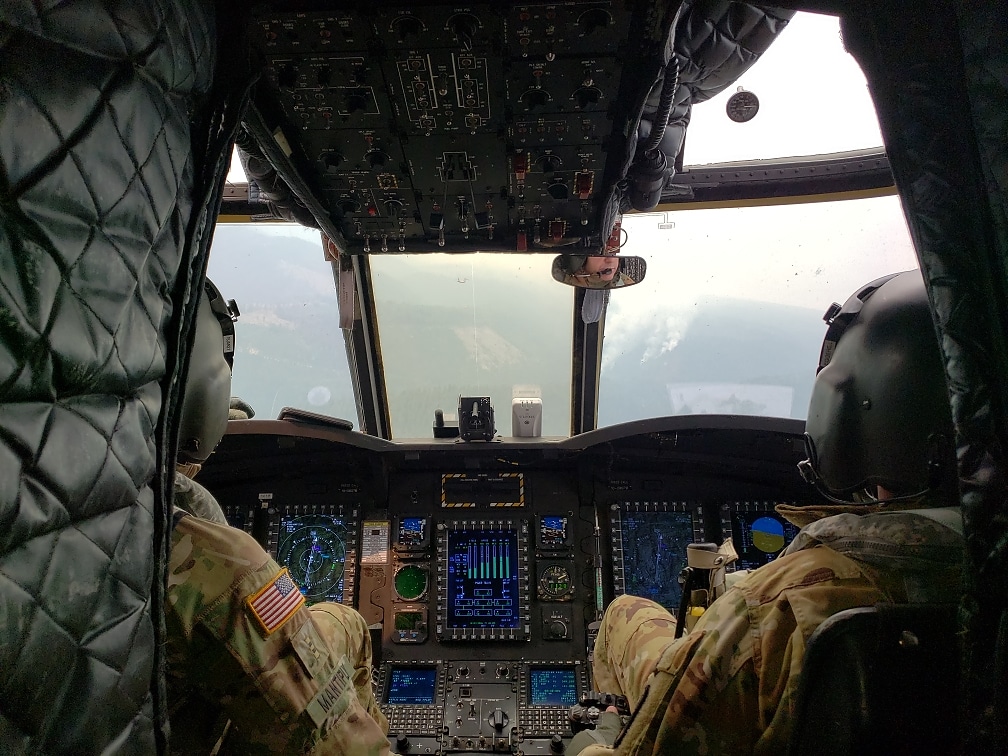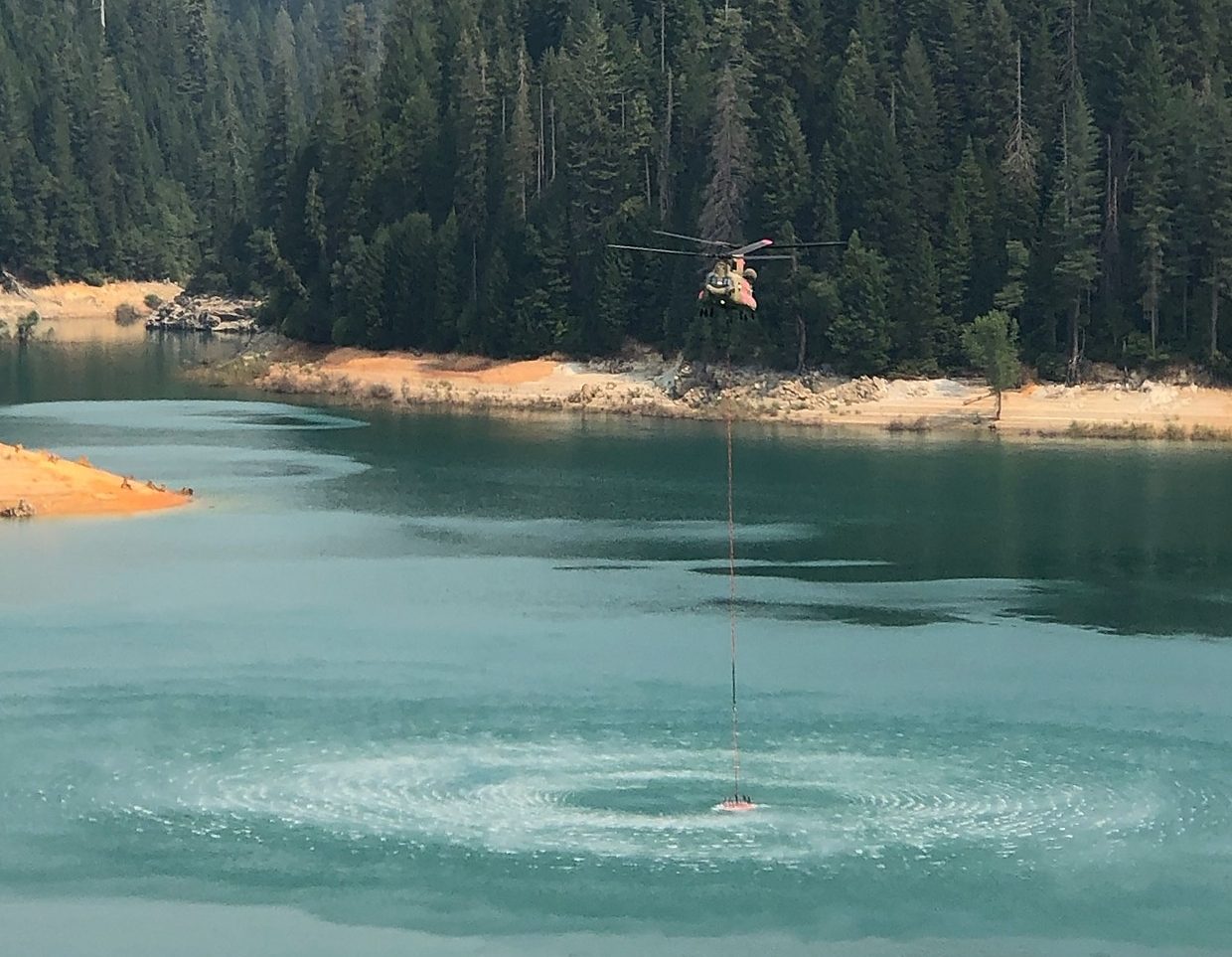The National Guard and U.S. military have sent assistance to the site of massive fires in Northern California that have burned hundreds of homes and spurred the evacuation of tens of thousands of residents.
The help comes amid a staffing shortage on the fire lines that has caused officials to make wrenching decisions about what areas to save and which ones to let burn.
The Guard is providing helicopter support along with a dozen 20-person crews to fires throughout the state, and the military has sent several C-130 aircraft specially equipped to act as air tankers, said Jeremy Rahn, public information officer for the LNU Lightning Complex fire in Northern California.

The Cal Guard’s 146th Airlift Wing C-130 aircraft equipped with Modular Airborne Firefighting Systems (MAFFS) sits ready to deploy for wildfire fighting missions at McClellan Air Park in Sacramento, California, July 28, 2020. The 146th Airlift Wing deployed two C-130 aircraft with MAFFS in support of wildfires in Northern California in partnership with CAL FIRE and federal agencies. (U.S. Army National Guard photo by Staff Sgt. Amanda H. Johnson)
Gov. Gavin Newsom announced Saturday that the White House had approved California’s request for a presidential major disaster declaration to bolster the state’s emergency response to wildfires burning in Northern California.
The second- and third-largest fires in California history are expected to grow in the next few days as a new thunderstorm system moves over the state, producing dry lightning and gusty winds.
“Check out video of #CalGuard’s @146AirliftWing flying a firefighting mission to help contain #CaliforniaFires,” the California National Guard tweeted Saturday.
Check out video of #CalGuard‘s @146AirliftWing flying a firefighting mission to help contain #CaliforniaFires. https://t.co/2p21Y9NpkR
— The California National Guard (@CalGuard) August 22, 2020
The National Weather Service issued red-flag warnings across large swaths of Northern and Central California that went effect at 5 a.m. Sunday.
With more need than can be met by the crews available, fire experts said state officials were having to prioritize which fires would get resources and change how those resources were being used. Though officials often deploy crews and equipment to surround fires with defensible lines so that they can be contained, fire experts said the focus was now on saving lives and structures, and they predicted that the current blazes would burn for weeks.

A California National Guard CH-47F Chinook works the Butte Lightning Complex fire in the Chico area. (California National Guard photo/Released)
“At the statewide level, we do get into this mode where we start wondering where the biggest loss is going to be, what’s the highest priority, and that is where the resources are going to go,” said Lenya Quinn-Davidson, a fire expert with the UC Cooperative Extension.

A California National Guard CH-47F Chinook works the Butte Lightning Complex fire in the Chico area. (California National Guard photo/Released)
———
©2020 Los Angeles Times
Distributed by Tribune Content Agency, LLC.



